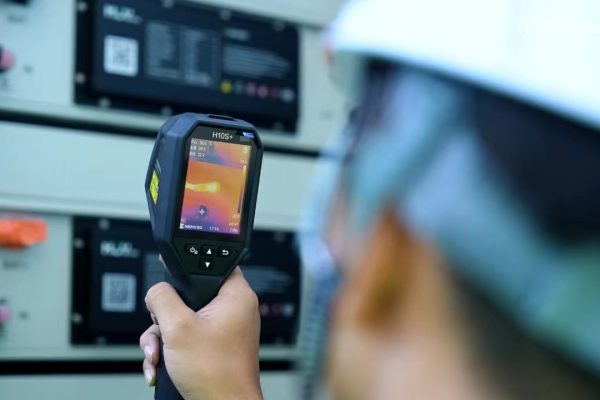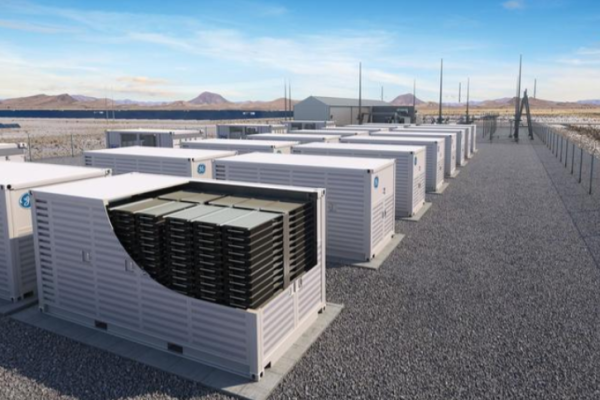Troubleshooting RS485, CAN, Wi-Fi, and Modbus for PV+ESS Systems
In a solar + storage system, the inverter is the brain — but communication is the nervous system. When communication errors occur between the hybrid inverter, battery, BMS, or monitoring platform, even the best hardware becomes unreliable.
These issues often frustrate small installers and overseas buyers who lack full-time technical teams. This guide covers the most common communication errors in hybrid inverters, how to identify them, and how to solve them quickly — even in the field.
🔧 Why Communication Matters
A hybrid inverter relies on real-time communication to:
- Control battery charging/discharging
- Monitor PV and load data
- Execute EMS logic (grid export limit, backup switching)
- Display correct info on apps or web portals
⚠️ No communication = no control = poor performance or shutdown
🧩 Common Communication Interfaces in Hybrid Inverters
| Interface | Typical Use | Protocol | Hardware |
|---|---|---|---|
| RS485 | Inverter ↔ Battery / Meter | Modbus RTU | A/B twisted pair |
| CAN | Inverter ↔ Battery BMS | CANOpen / Proprietary | Shielded cable |
| Wi-Fi / LAN | Monitoring | TCP/IP | Dongle or RJ45 |
| 4G | Remote monitoring (no Wi-Fi) | TCP/IP | SIM-based modem |
🚨 Top 6 Communication Errors & Solutions
1️⃣ Battery Not Detected / “BMS Offline”
Symptoms:
- SOC always 0%
- Charging/discharging disabled
- “BMS Error” or “No CAN/RS485” on screen
Cause:
- Incorrect battery protocol or wiring
- Baud rate mismatch
- Cable damaged or reversed
Solution:
- Check battery protocol setting (e.g., Pylontech, BYD, custom)
- Match baud rate (usually 9600 or 500K for CAN)
- Inspect pinout: A/B lines not reversed?
- Use shielded twisted-pair cable ≤10m
- Confirm inverter firmware supports your battery
💡 Try factory default protocol first (e.g. PYL) then manually select.
2️⃣ Wi-Fi Dongle Not Connecting to App/Portal
Symptoms:
- No data in monitoring portal
- Dongle light flashing but not steady
- “No device found” in app
Cause:
- Wi-Fi SSID not saved
- Weak signal or 5GHz-only router
- Dongle not registered or outdated
Solution:
- Use inverter’s Wi-Fi hotspot to configure (e.g., Growatt’s ShineWiFi)
- Ensure 2.4GHz network is enabled
- Update dongle firmware via USB (if supported)
- Re-register device SN on portal
💡 Tip: Some apps only work with certain regions (set to “Global” or “EU” if unsure).
3️⃣ Modbus Meter Not Detected
Symptoms:
- Zero grid export / import shown
- Export limit not working
- “No meter” or “CT error” message
Cause:
- RS485 wiring error
- Address mismatch (default ≠ 1)
- CT clamps reversed or not connected
Solution:
- Confirm meter address via DIP switch or software
- Swap RS485 A/B if needed
- Verify CT direction (arrow toward load)
- Check cable length & termination resistor
💡 In long RS485 runs (>50m), use termination resistors (120Ω) at both ends.
4️⃣ Multiple Devices on RS485 Bus — Collision
Symptoms:
- Intermittent battery or meter detection
- BMS resets or errors randomly
- Conflicting data on monitoring
Cause:
- Multiple RS485 slaves with same address
- Improper RS485 daisy-chain (star topology)
- Weak termination or long line
Solution:
- Assign unique Modbus addresses (e.g., Battery = 1, Meter = 2)
- Use daisy chain wiring (A-B-A-B) — avoid star/split
- Install proper termination resistors
- Shield and ground RS485 cable
💡 Use twisted pair with drain wire grounded at inverter end only.
5️⃣ CAN Bus Instability
Symptoms:
- Battery shows up, then disappears
- SOC fluctuates or locks at 50%
- Charging not following logic
Cause:
- Wrong CAN protocol
- Voltage mismatch (some use 5V logic)
- Bad grounding or shielding
Solution:
- Confirm CAN baud rate and compatibility
- Use correct wiring order: CAN_H / CAN_L
- Match inverter’s expected voltage levels
- Test with shorter cable (under 3m)
💡 Some systems need inverter reboot after CAN cable re-plug.
6️⃣ Cloud Monitoring Disconnects Frequently
Symptoms:
- Data uploads sporadically
- Device goes “offline” multiple times/day
- Portal graphs with missing points
Cause:
- Local network instability
- Poor DNS or firewall blocks
- Old dongle firmware
Solution:
- Use static IP or reserve IP in router
- Set DNS to 8.8.8.8 (Google)
- Test with mobile hotspot to isolate router issue
- Replace dongle if older than 3 years
💡 For remote clients, consider LTE dongle with SIM fallback.
🧰 Tools You Should Always Bring
| Tool | Use |
|---|---|
| RS485/USB adapter | Modbus test on laptop |
| Multimeter | Voltage check on communication ports |
| Laptop with ModScan/Modbus Poll | Reading inverter/battery registers |
| RJ45 breakout cable | For pinout testing |
| Termination resistors (120Ω) | For bus testing |
✅ With these, you can solve 90% of site-level communication issues.
🧠 Best Practices for Installers & Integrators
- Always label cables (RS485-1, CAN-BMS, etc.)
- Stick to shielded cables for all communication lines
- Never mix RS485 and CAN ports on the same terminals
- Use default settings first, then customize if needed
- Test all communication before finalizing commissioning report
Communication errors are one of the top reasons for system underperformance and customer complaints — especially in export projects where remote support is harder.
By understanding RS485, CAN, Wi-Fi and Modbus basics, installers can:
- Speed up commissioning
- Reduce support tickets
- Improve long-term system reliability
- Earn trust as “technically solid” partners
💡 Communication is invisible, but its failure is loud. Solve it early, and win client loyalty.








